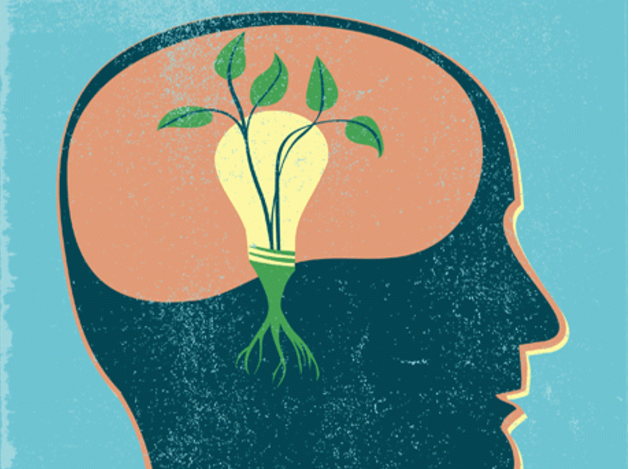Psychologist Carol Dweck’s “growth mindset” theory has become increasingly popular in the education world since her book Mindset was published in 2006. In a nutshell, Dweck argues that people possess two distinct attitudes: fixed mindsets (which assume that intelligence and talent are innate and inalterable traits, like height or eye color) and growth mindsets (which assume that abilities and knowledge can be developed through hard work and determination). By embracing the growth mindset, Dweck states, students gain “a love of learning and a resilience that is essential for great accomplishments.” For them, setbacks become not failures, but opportunities to reflect, learn, and improve one’s knowledge and skills.

Image source: iStockphoto via Edutopia http://edut.to/1jlLR9Z
You can see why educators—the people charged with cultivating our children’s knowledge and skills—are smitten with Dweck’s growth-mindset framing, and have been incorporating it into school mission statements and their work with children. Across Rhode Island this framework has led educators to challenge students to set their own goals and to demonstrate creativity, problem-solving and perseverance. Similarly, administrators ask teachers to adopt a growth mindset and adapt and innovate their own practice to better support all learners.
These are all good things.
But as we ask students and teachers to embrace a growth mindset, so must we demand that our systems—and their leaders—do so as well. For the most part, in Rhode Island and across the nation, our educational system remains doggedly attached to a model developed well over a century ago (in the context of an economy that no longer exists): a set series of subjects students learn about in a prescribed order from teachers at the front of a classroom. How is that system serving today’s students? Poorly, it would seem—for the vast majority of our nation’s youth, anyway—if absenteeism, test data, graduation and unemployment rates are any indications.
Unfortunately, most efforts to address our nation’s education woes seem merely to tinker around the edges of its problems: an updated student assessment here, a restructured teacher evaluation program there. But piecemeal improvements to a system that no longer works will not prepare our students for tomorrow. The 2015 documentary Most Likely to Succeed makes a compelling case for the need to completely reimagine educational delivery, in order to make “school” more relevant, meaningful and valuable to today’s students. In order to successfully overhaul the system, we must think boldly, and not allow fear of failure to hold us back. We need to encourage and support a variety of approaches—be they full-service community schools, public charter schools, empowerment schools, flipped classrooms, blended learning or other personalized opportunities—in our efforts to deliver quality education to all children. In essence, we need to embrace a growth mindset and see the challenges of reimagining our educational system as opportunities.
The worst thing we could do for our students is to continue business as usual. We live in a world far different from the one in which we adults grew up and the one in which our current educational institutions and policies were sculpted.
In rethinking educational delivery we must be humble enough to admit that we will be experimenting and courageous enough to innovate and strive with an eye toward the future we are only just starting to imagine. As adults, we need to better exemplify the growth mindset in education that we are asking of our students. And as a state, we need to ensure that we rethink our systems in the same way we are asking our educators to rethink their practice. As Carol Dweck states: “Mindset change is not about picking up a few pointers here and there. It’s about seeing things in a new way. When people…change to a growth mindset, they change from a judge-and-be-judged framework to a learn-and-help-learn framework. Their commitment is to growth, and growth takes plenty of time, effort, and mutual support.”
